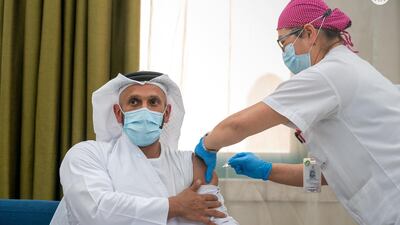Even as researchers scramble to halt the coronavirus pandemic in its tracks, science is being undermined by dwindling funds and fabricated theories. Children in the developing world are increasingly being deprived of life-saving immunisation while conspiracy theorists in the West dissuade parents from getting their children vaccinated. The two trends could prove disastrous. A UN survey of more than 80 countries has found that three in four immunisation programmes have been halted or delayed due to the coronavirus. A child born today has 20 per cent less chance of getting all the recommended vaccines by the age of five, leaving millions exposed to preventable disease.
Providing vaccines has become a challenge as the pandemic has restricted access to healthcare. Personnel, funds and medical facilities have been diverted towards the Covid-19 response. In the long term, this imbalance could have fatal ramifications.
Vaccine and funding shortages could spark other outbreaks in addition to the current pandemic. For instance, at least 30 measles vaccination campaigns were cancelled or put at risk this year, even as cases of measles had been on the rise prior to the coronavirus.
Diminished funding has affected the healthcare sector beyond vaccines. The British charity Cancer Research UK announced an estimated £300 million (Dh1.39bn) cut in fundraising over the next three years.
The global response to Covid-19 must take into account other threats to public health, which have not gone away with the pandemic. In the words of Henrietta Fore, Unicef's executive director: "We cannot trade one health crisis for another".
Vaccines save 3 million lives every year, but despite the overwhelming scientific evidence, a campaign against immunisation, led by so-called anti-vaxxers, is paving the way for disaster. Relying on an anecdotal study that was disproved years ago, the movement claims that vaccines are linked to autism and has been on a deadly quest to discourage people from providing their children with life-saving shots.
A survey published by a German newspaper this week found that the confidence of Europeans in vaccines is decreasing. In April, 74 per cent of participants said they would get inoculated should a coronavirus vaccine become available. Two months later, that number dropped to 68 per cent. According to a separate survey by the British analytics firm YouGov, only 50 per cent of Germans are willing to be vaccinated against Covid-19.
With vaccination on the wane worldwide and misplaced scepticism on the rise in the West, it is all the more important to fight disinformation and provide funding for immunisation programmes.
Politicians and public figures must also lead by example, driving public support for science through their actions. This includes wearing masks in public and partaking in efforts to curb the spread of the coronavirus. Yesterday for instance, the chairman of the Department of Health Abu Dhabi, Sheikh Abdullah bin Mohammed Al Hamed, volunteered to be the first to test for a Covid-19 vaccine. The UAE has commenced clinical trials for two Covid-19 vaccines, with 15,000 volunteers set to take the shots.
For science to prevail, governments must devote more resources to dispelling false information and espouse a more holistic approach to public health.


